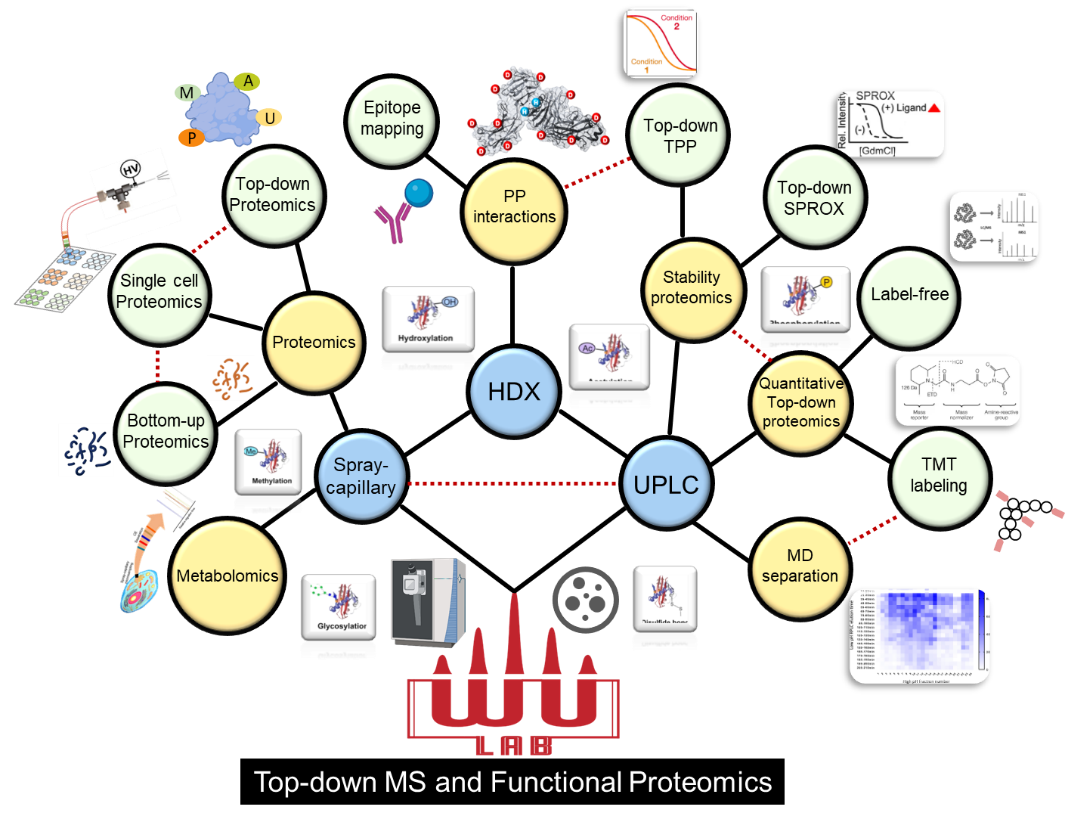
Education
- BS, 1997, Anhui University
- PhD, 2006, Washington State University
- Post-doctoral Associate, 2006-2008, Pacific Northwest National Laboratory
Research Areas
- Analytical Chemistry
- Biochemistry
Research
Our lab focuses on investigating the crucial role of protein post-translational modifications (PTMs) in regulating and diversifying protein activities using innovative top-down mass spectrometry (MS) and functional proteomics technologies. Top-down MS: Our innovative top-down MS approach involves developing novel analytical tools for quantitative ultra-low volume sampling (e.g., single-cell level), high-resolution ultrahigh pressure separations, and multiplexed quantitations using isobaric labeling of intact proteoforms (e.g., TMT or iTRAQ). By utilizing our top-down platform, we gain a “birds-eye” view of monoclonal antibodies from patient sera, particularly those suffering from autoimmune diseases like systemic lupus erythematosus (SLE). This research holds promising potential in providing new insights into the autoantibody affinity maturation process and identifying novel biomarkers for the diagnosis and treatment of SLE. Functional proteomics: We have developed a suite of advanced approaches, including a high-throughput hydrogen-deuterium exchange MS (HDX-MS) platform for probing protein-protein interactions and a top-down thermal protein profiling approach (top-down TPP) for characterizing proteoform structural stabilities in complex biological samples. Using functional proteomics approaches, we are linking the presence of specific antibodies/antigens with disease activity in infectious and autoimmune diseases. Overall, our research aims to uncover critical insights into protein modifications and their functional implications, advancing our understanding of disease mechanisms and potentially opening new avenues for targeted therapeutic interventions.
Selected Publications
Dr. Wu’s publication list
